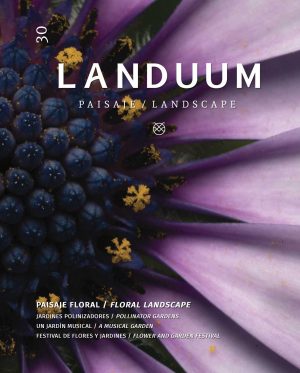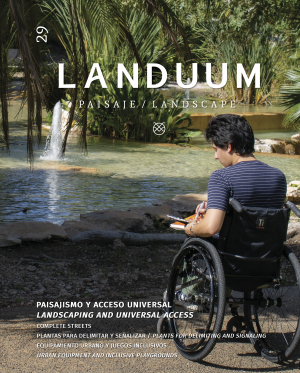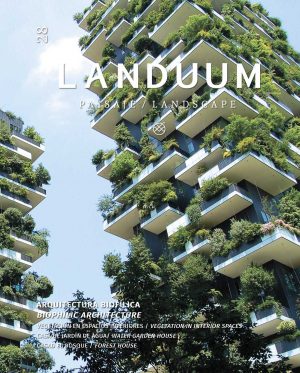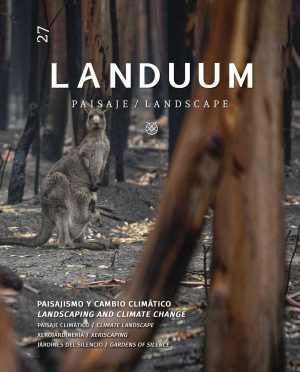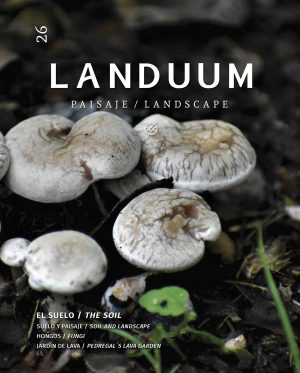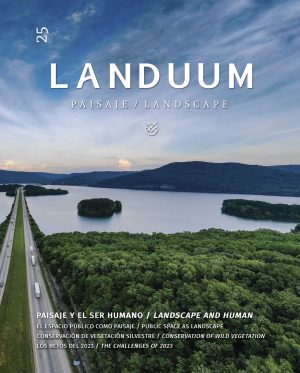Martha Fajardo Pulido
Colombian Architect, with a Master’s Degree in Landscape Design. Co-founder and director of the Latin American Landscape Initiative.
Former President and Honorary Member of the International Federation of Landscape Architects IFLA, Former President and Honorary Member of the Colombian Society of Landscape Architects and Member of the Board of Directors of Nature of Cities. Manager of the firm Grupo Verde Ltda.

Architect Martha Fajardo Pulido
Photography: Olga Lucía Jordán
WHAT INITIATIVES HAVE THE LALI NETWORK IMPLEMENTED TO INFLUENCE LANDSCAPE ARCHITECTURE IN LATIN AMERICA?
Since 2012, LALI has promoted the values of the Latin American landscape through the adoption of covenants (laws-agreements-decrees-ordinances) that recognize the diversity and the local, national and regional, tangible and intangible heritage of the landscape, as well as the relevant principles and processes to safeguard it; supported by a landscape identity, and institutions and partners, that lead the legal aspect of the landscape.
It is also a set of networks to share diverse and transformative ideas through its nodes, projects, publications, symposia and forums, which works through strategic alliances, raising awareness and safeguarding our landscape, reinforcing the bonds of brotherhood between this extraordinary and diverse Latin American region.
The nodes of which I speak, are interconnected and recognize, plan, manage and design the Latin American landscape and, through their different approaches and perspectives, the initiative flourishes in horizontality: good practices, catalogs, communication, education, political management of the landscape, children, ancestral landscapes, publication, international relations. Last January we received the Urban Menus Smart city international award “Philanthropy for the environment”, for being a strong group in itself, which creates a common space for discourse and action to respond to social and environmental crises. At LALI we promote solidarity, union and coexistence, to facilitate a comprehensive change for the benefit of urban and regional development.

Conceptual diagram of the integral nature of the right to landscape
Illustration: Martha Fajardo Pulido
LATIN AMERICA IS A VAST REGION WITH AN IMPORTANT CULTURAL AND BIOLOGICAL WEALTH. ARE THERE TRANSNATIONAL CONSERVATION AND RECOVERY POLICIES?
Faced with the global crisis that we are experiencing, and in particular the one in Latin America, the world needs authorized voices with technical knowledge and disciplines, that attend to the landscape and infrastructure in a close relationship between society and nature.
At LALI we opened the discourse towards the safeguarding of the landscape, crossing borders
to radically imagine our future cities in a transdisciplinary and multicultural campaign, with a crossroads of diverse views, exploring ways to change hearts and minds. Joan Nogué, has taught us that
the landscape is the soul of the territory, it reflects the society that inhabits it, the community that lives it. Therefore, our strategy is to reach an International Landscape Agreement and, based on the recommendations of UNESCO – IFLA, work from the regions to build a text for the safeguarding of the Latin American landscape.
Talking about a Landscape Agreement for Latin America, means a great advance in its geopolitical positioning. For this reason, it is a great step to follow, to join this co-creation process (http://www.lali- iniciativa.com/hacia-un-convenio-latinoamericano- del-paisajes-2/) and be part of the solution. Thus, in this agreement, the landscape, which is protected and is safeguarded, is the well protected by a new law, the right to the landscape, a collective human right.
WHAT IS THE FUTURE AND THE IMPORTANCE OF LANDSCAPING AFTER THE COVID-19 PANDEMIC?
The COVID-19 pandemic has made us all rethink urban development, public space, the landscape and reflect on their importance in our cities as places of refuge, community and areas where humans and nature intertwine. The importance of building a fairer world, where everyone can access the goods
of the earth, and have the possibility of realizing themselves as people in harmony with nature, where fundamental rights and dignity are guaranteed in our states, and for everyone equally, today is more important than ever.
We recognize that the landscape can be the engine of sustainable development. Landscape as a political issue is a critical issue for action, because it is public policy that defines how the connection between the natural and human environment will be represented in public spaces. The landscape connects ecological, social, cultural and technological elements of the world around us (LALI 2018). However, the landscape is also a difficult entity to define, it has been difficult to protect in regulation and the law consequently loses or blurs the values of the landscape for development in general.
Deciding on development is a right for a few people and erosion at the edge of landscapes leads to scenarios where they disappear before we knew we were losing them. May ours be, a time that is remembered for the awakening of a new reverence for biodiversity; With the firm idea of achieving sustainability, resilience and well-being within equity, peace, celebration and respect for life, what LALI is committed to, is a pact for life.
“The landscape is a fundamental element of the individual and collective well-being, a well-kept landscape is an indication of civilization.”



